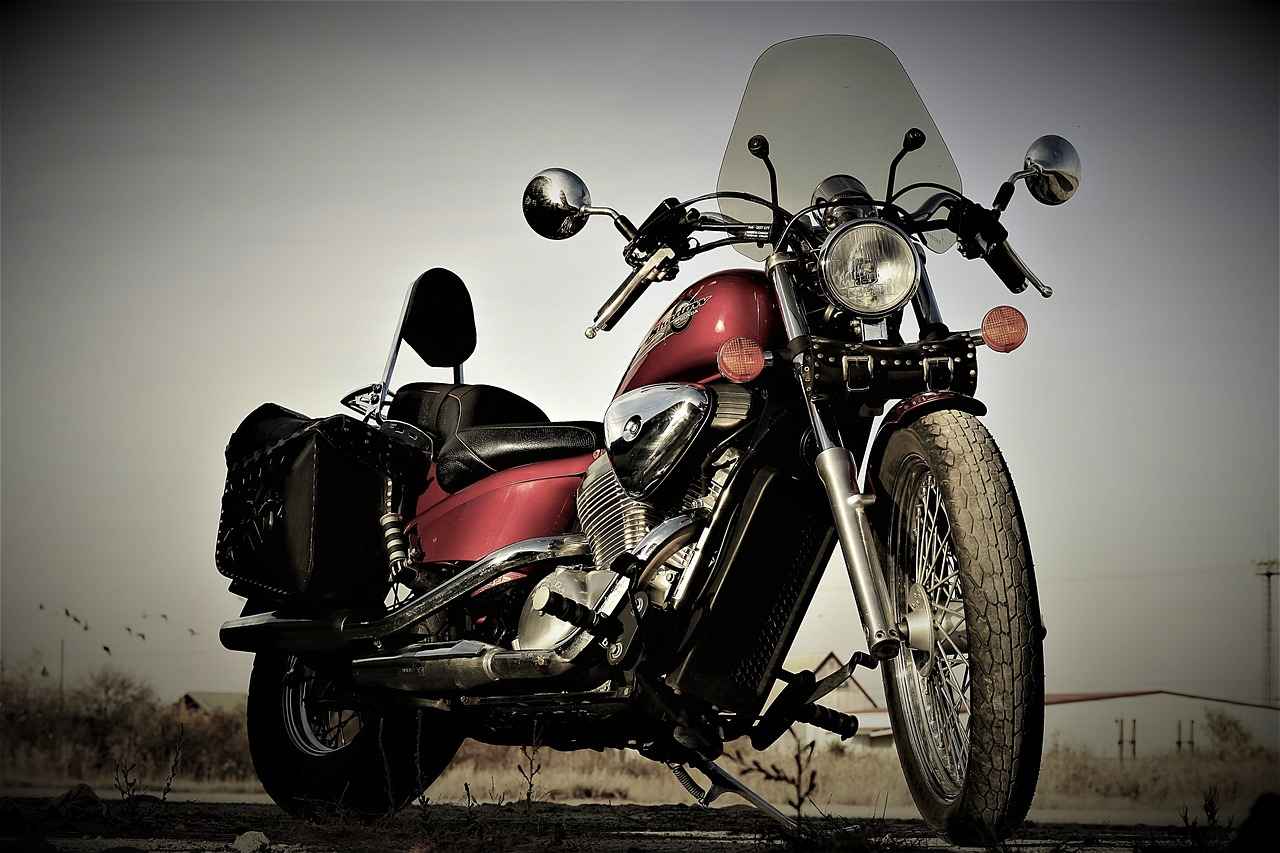This article explores whether Honda Accords come with all-wheel drive (AWD) options, examining the features, benefits, and alternatives available for consumers considering this popular vehicle model. Understanding the drivetrain options is essential for potential buyers, especially those living in regions with challenging weather conditions.
What is AWD and Why is it Important?
All-wheel drive (AWD) is a system that powers all four wheels of a vehicle, enhancing traction and stability. This feature is particularly beneficial in adverse weather conditions such as rain, snow, or ice. By distributing power to all wheels, AWD improves handling and control, making it a valuable option for drivers who frequently encounter challenging road conditions.
Do All Honda Accords Have AWD?
Traditionally, Honda Accords have been known for their front-wheel drive (FWD) configuration, which has been standard across most models. However, the availability of AWD has been limited to specific trims and models, particularly in recent years as consumer demand for AWD options has increased.
Honda Accord Generations and AWD Availability
Over the years, Honda has evolved the Accord lineup. While older generations primarily featured FWD, newer models have begun to offer AWD options. This shift reflects Honda’s response to changing consumer preferences and the growing popularity of AWD vehicles in the market.
Recent Models with AWD Options
The 2023 Honda Accord marks a significant development in the availability of AWD, featuring it in select configurations. This enhancement aims to attract buyers seeking improved performance and control, especially in regions prone to harsh weather.
Comparative Analysis with Competitors
When considering an AWD Honda Accord, it’s crucial to compare it with competitors in the midsize sedan segment. Brands like Subaru and Toyota have established reputations for AWD systems, making it essential for consumers to weigh their options carefully. Understanding how the Accord’s AWD features stack up against rivals can aid in making an informed decision.
Benefits of Choosing an AWD Honda Accord
- Improved Handling: AWD provides better handling in adverse weather conditions.
- Enhanced Traction: This feature allows for better acceleration on slippery surfaces.
- Increased Confidence: Drivers often feel more secure knowing their vehicle can handle various road conditions.
What Are the Alternatives to AWD in Honda Accords?
While AWD offers distinct advantages, many consumers find that front-wheel drive (FWD) adequately meets their needs, especially in milder climates. FWD is standard in most Honda Accords, providing sufficient traction and fuel efficiency for everyday driving.
Hybrid Options and Their Drive Configurations
In addition to traditional gas models, Honda offers hybrid variants of the Accord, which typically feature FWD. These options cater to eco-conscious consumers looking for fuel efficiency without the added complexity of AWD.
How Does AWD Impact Fuel Efficiency?
A key consideration for potential buyers is how AWD affects fuel efficiency. Generally, vehicles equipped with AWD may consume more fuel than their FWD counterparts due to the additional weight and mechanical complexity involved in powering all four wheels.
Fuel Economy Comparisons
Examining fuel economy ratings between AWD and FWD Honda Accords can provide clarity for buyers prioritizing cost-effective driving solutions. Typically, FWD models offer better fuel efficiency, making them a practical choice for everyday commuting.
Real-World Driving Experiences
Insights from current Honda Accord owners can shed light on the practical implications of choosing AWD versus FWD. Many drivers report enhanced performance and stability with AWD, particularly in regions with unpredictable weather patterns.
Is an AWD Honda Accord Right for You?
Deciding whether to choose an AWD Honda Accord hinges on individual driving habits, climate considerations, and personal preferences. By evaluating these factors, potential buyers can determine if the AWD option aligns with their needs and lifestyle.

What is AWD and Why is it Important?
Understanding all-wheel drive (AWD) is crucial for potential car buyers, especially those considering vehicles that may be exposed to challenging driving conditions. AWD systems are designed to provide power to all four wheels of a vehicle simultaneously, enhancing traction and stability. This feature is particularly beneficial in adverse weather conditions, such as rain, snow, or ice, where maintaining control of the vehicle becomes increasingly difficult.
When driving on slippery surfaces, AWD can significantly improve a vehicle’s handling capabilities. By distributing power to all four wheels, AWD helps prevent wheel slippage, allowing for smoother acceleration and safer cornering. This is especially important for drivers who live in regions that experience harsh winter weather or frequent rain.
Moreover, AWD systems can enhance a vehicle’s overall performance. For instance, when driving off-road or on uneven terrain, having power directed to all four wheels can provide a more stable and confident driving experience. This capability makes AWD vehicles more versatile, appealing to those who enjoy outdoor activities or live in rural areas.
In addition to safety and performance benefits, AWD can also positively impact a vehicle’s resale value. Cars equipped with AWD are often more desirable in the used car market, as many consumers prioritize this feature for its practicality and reliability in various conditions.
However, it’s important to note that AWD systems can come with trade-offs. One significant consideration is fuel efficiency. Generally, AWD vehicles may consume more fuel compared to their front-wheel drive (FWD) counterparts due to the added weight and complexity of the drivetrain. This can lead to higher operating costs over time, which is an essential factor for budget-conscious buyers.
Moreover, while AWD enhances traction, it does not necessarily improve stopping distances. Drivers should still exercise caution and maintain appropriate speeds in adverse weather conditions, as AWD does not make a vehicle invincible.
In summary, understanding AWD is essential for potential car buyers as it offers enhanced traction and stability, making vehicles safer and more capable in various driving conditions. However, buyers should also consider the implications on fuel efficiency and overall costs when deciding whether an AWD vehicle aligns with their needs and lifestyle.

Do All Honda Accords Have AWD?
The Honda Accord is one of the most popular midsize sedans on the market, known for its reliability, comfort, and innovative features. However, when it comes to all-wheel drive (AWD), potential buyers often wonder: This article delves into the availability of AWD in Honda Accords, examining its features, benefits, and alternatives.
All-wheel drive (AWD) is a drivetrain system that provides power to all four wheels of a vehicle simultaneously, enhancing traction and stability. This is particularly beneficial in adverse weather conditions, such as rain, snow, or icy roads. For drivers who frequently encounter challenging driving conditions, AWD can significantly improve safety and performance.
Not all Honda Accords are equipped with AWD. Traditionally, Honda has favored front-wheel drive (FWD) as the standard configuration across most of its models, including the Accord. This FWD setup offers excellent fuel efficiency and adequate handling for everyday driving needs. However, in recent years, Honda has begun to introduce AWD options in select models and trims, catering to a growing demand for enhanced performance.
The availability of AWD in Honda Accords has evolved over the years. Older generations primarily featured FWD, focusing on fuel efficiency and practicality. However, newer models, particularly from 2023 onward, have started to offer AWD in specific trims, appealing to consumers looking for better control and performance.
The 2023 Honda Accord marks a significant shift in Honda’s approach to drivetrain options, featuring AWD in certain configurations. This change allows drivers to benefit from improved handling and stability, particularly in challenging weather conditions. As consumers increasingly seek vehicles that can perform well in various scenarios, Honda’s AWD offerings become more relevant.
When considering a Honda Accord, it’s essential to compare it with competitors in the midsize sedan market. Many rivals offer AWD as a standard feature, which can influence buyer decisions. Understanding how AWD fits into the overall lineup of the Honda Accord helps potential buyers make informed choices based on their specific driving needs and preferences.
- Improved Handling: AWD provides better traction on slippery surfaces, enhancing safety.
- Enhanced Acceleration: AWD allows for quicker starts and better acceleration in adverse conditions.
- Increased Confidence: Drivers often feel more secure navigating challenging weather with AWD.
While AWD offers specific advantages, many consumers may find that FWD meets their needs effectively. Front-wheel drive is standard in most Honda Accords, providing sufficient traction and fuel efficiency for daily driving, particularly in regions with milder climates.
Honda also offers hybrid variants of the Accord, which typically feature FWD. These models provide an eco-friendly alternative while maintaining excellent fuel efficiency. Understanding these options can help eco-conscious consumers make informed choices that align with their values.
A common concern for potential buyers is how AWD affects fuel efficiency. Generally, AWD vehicles may consume more fuel than their FWD counterparts due to added weight and drivetrain complexity. Potential buyers should consider their driving habits and weigh the benefits of AWD against possible fuel economy drawbacks.
Examining fuel economy ratings between AWD and FWD Honda Accords can provide clarity for buyers prioritizing cost-effective driving solutions. While AWD enhances performance, FWD models often excel in fuel efficiency, making them a practical choice for daily commutes.
Insights from current Honda Accord owners can shed light on the practical implications of choosing AWD versus FWD. Many drivers report enhanced performance and confidence with AWD, especially in regions prone to inclement weather, while others appreciate the efficiency and reliability of FWD models.
Honda Accord Generations and AWD Availability
The Honda Accord has long been a staple in the automotive market, known for its reliability, comfort, and performance. One of the key considerations for potential buyers is the availability of all-wheel drive (AWD) options across different generations of the Accord. This article delves into the historical context and current offerings of AWD in Honda Accords, helping you make an informed decision.
All-wheel drive (AWD) is a drivetrain system that provides power to all four wheels of a vehicle, enhancing traction and stability. This feature is particularly beneficial in adverse weather conditions, making driving safer and more manageable. For many consumers, the question arises: Do all Honda Accords come with AWD?
Historically, the Honda Accord has predominantly featured front-wheel drive (FWD) as its standard configuration. This has been especially true for older models, where FWD was the norm, delivering adequate performance for most driving conditions. However, as consumer preferences evolved and the demand for AWD increased, Honda began to adapt.
The introduction of AWD in the Honda Accord has been gradual. Older models, particularly those produced before the 2020s, primarily offered FWD. The shift towards AWD began with the latest generations, where Honda started to incorporate AWD options in select trims. For instance, the 2023 Honda Accord marks a significant milestone, offering AWD in specific configurations, catering to drivers seeking enhanced performance and control.
Opting for an AWD Honda Accord can provide several advantages. The most notable benefits include:
- Improved Traction: AWD enhances grip on slippery surfaces, making it ideal for regions prone to rain or snow.
- Better Handling: AWD systems distribute power to all wheels, resulting in superior handling and stability during cornering.
- Increased Confidence: Drivers often feel more secure knowing their vehicle can handle diverse road conditions.
While AWD offers unique benefits, many consumers may find that front-wheel drive (FWD) adequately meets their needs. FWD is standard in most Honda Accords, providing sufficient traction and fuel efficiency for everyday driving. It’s particularly advantageous in mild climates where extreme weather conditions are rare.
Honda also offers hybrid variants of the Accord, which typically feature FWD. These hybrids are designed for eco-conscious consumers looking to reduce their carbon footprint while still enjoying the comfort and reliability associated with the Accord brand. Understanding these options can help buyers make informed choices based on their priorities.
One of the considerations for potential buyers is how AWD affects fuel efficiency. Generally, AWD vehicles may consume more fuel than their FWD counterparts due to added weight and complexity. Buyers should examine the fuel economy ratings between AWD and FWD Honda Accords to make cost-effective driving decisions.
Insights from current Honda Accord owners can provide valuable perspectives on the practical implications of choosing AWD versus FWD. Many drivers report enhanced performance in inclement weather with AWD, while others appreciate the fuel efficiency and simplicity of FWD for daily commutes.
In conclusion, the availability of AWD in Honda Accords has evolved significantly over the years. As consumer needs change, Honda continues to adapt its offerings, making it essential for potential buyers to consider their driving habits, climate, and preferences when choosing between AWD and FWD options.
Recent Models with AWD Options
The automotive landscape is continuously evolving, and Honda is no exception. In recent years, the 2023 Honda Accord has made headlines by introducing All-Wheel Drive (AWD) options in select configurations. This shift not only enhances the vehicle’s performance but also caters to a growing consumer demand for better traction and control in various driving conditions.
AWD systems distribute power to all four wheels, providing improved grip and stability, especially on slippery surfaces such as rain-soaked roads or snow-covered paths. For those considering the Honda Accord, the availability of AWD means:
- Enhanced Safety: Increased traction reduces the likelihood of skidding.
- Improved Handling: Better control during cornering and adverse weather conditions.
- Versatile Performance: Greater capability for both city driving and off-road adventures.
While not all Honda Accords come equipped with AWD, the 2023 model offers this feature in specific trims, allowing buyers to choose based on their preferences and driving needs. The AWD option is particularly appealing for those living in regions with harsh winters or frequent rain, where enhanced traction is crucial.
Historically, the Honda Accord has been well-known for its Front-Wheel Drive (FWD) configuration, which remains standard across many models. FWD is often sufficient for daily driving, offering:
- Fuel Efficiency: Typically, FWD models consume less fuel compared to their AWD counterparts.
- Cost-Effectiveness: Lower initial costs and maintenance expenses.
However, the choice between AWD and FWD ultimately depends on individual driving habits and environmental conditions.
Opting for an AWD Honda Accord presents several advantages:
- Enhanced Performance: AWD systems provide better acceleration on slippery surfaces.
- Increased Confidence: Drivers can feel more secure navigating challenging weather conditions.
- Broader Appeal: AWD options attract a diverse range of buyers, from families to outdoor enthusiasts.
For consumers who may not require AWD, Honda offers various alternatives. The standard FWD models provide reliable performance and fuel efficiency, making them a practical choice for everyday driving. Additionally, hybrid variants of the Accord typically feature FWD, appealing to eco-conscious drivers.
One common concern among potential buyers is how AWD affects fuel efficiency. Generally, AWD vehicles may consume more fuel due to their added weight and complexity. However, advancements in technology have led to more efficient AWD systems that minimize the impact on fuel economy.
Insights from current Honda Accord owners highlight the practical implications of choosing AWD versus FWD. Many drivers report a noticeable difference in handling and confidence during adverse weather conditions, reinforcing the value of AWD for those who prioritize safety and performance.
Ultimately, the decision to choose an AWD Honda Accord hinges on individual needs, driving habits, and climate considerations. Evaluating these factors can help guide prospective buyers toward the right model that aligns with their lifestyle and preferences.
Comparative Analysis with Competitors
When it comes to choosing a vehicle, understanding the competitive landscape is crucial for making an informed decision. The Honda Accord has long been a favorite among car buyers, but how does it stack up against its competitors, especially regarding all-wheel drive (AWD) options? This section delves into the comparative analysis of the Honda Accord with its rivals, highlighting the importance of AWD in the overall lineup.
All-wheel drive plays a significant role in enhancing vehicle performance, particularly in challenging driving conditions. By distributing power to all four wheels, AWD improves traction and stability, making it an attractive option for those living in areas prone to snow or heavy rain. This feature can be a decisive factor for buyers prioritizing safety and control.
Not all vehicles in the midsize sedan segment offer AWD, which can set the Honda Accord apart from its competitors. Brands such as Toyota and Subaru have included AWD options in their sedans, appealing to a broader audience. However, the Honda Accord traditionally features front-wheel drive (FWD) as its standard configuration, with AWD becoming available in select trims in recent years. This shift may attract buyers looking for a balance between performance and fuel efficiency.
While AWD provides specific benefits, many consumers may find that front-wheel drive meets their needs effectively, especially in regions with milder climates. The Honda Accord’s FWD system is designed to deliver excellent fuel efficiency and sufficient traction for everyday driving. This makes it a practical choice for many drivers who do not require the added capabilities of AWD.
One of the critical considerations for potential buyers is how AWD affects fuel efficiency. Generally, AWD vehicles may consume more fuel than their FWD counterparts due to added weight and complexity. For instance, the Honda Accord’s FWD models typically achieve better fuel economy ratings compared to their AWD variants. Buyers focused on minimizing fuel expenses may find this aspect particularly important when making their choice.
Current Honda Accord owners can provide valuable insights into the practical implications of choosing AWD versus FWD. Many report that while AWD enhances driving confidence in adverse weather conditions, FWD models offer sufficient performance for daily commuting. This feedback can help prospective buyers weigh the benefits of AWD against their specific driving needs.
When comparing the Honda Accord to competitors like the Toyota Camry and Nissan Altima, it’s essential to consider how each vehicle handles in various conditions. The Camry offers AWD options across multiple trims, providing a competitive edge for buyers seeking this feature. On the other hand, the Nissan Altima has gained popularity for its standard AWD availability, making it a strong contender in this segment.
Ultimately, the decision to choose an AWD Honda Accord or a competitor’s vehicle boils down to individual driving habits, climate considerations, and personal preferences. Buyers should evaluate their specific needs, considering factors like weather conditions, fuel efficiency, and performance requirements. By understanding how AWD fits into the overall lineup of vehicles, consumers can make informed decisions that best suit their lifestyle.
Benefits of Choosing an AWD Honda Accord
When considering a vehicle that combines performance with safety, the AWD Honda Accord stands out as a compelling option. This article delves into the benefits of choosing an AWD variant of the Honda Accord, highlighting how it can enhance your driving experience.
- Improved Handling in Adverse Weather Conditions: One of the most significant benefits of an AWD system is its ability to provide superior traction. Whether you’re navigating through rain-soaked streets or snowy roads, an AWD Honda Accord can help maintain stability and control, reducing the likelihood of slipping or skidding.
- Better Acceleration on Slippery Surfaces: AWD enhances the vehicle’s power distribution to all four wheels, allowing for quicker acceleration even in challenging conditions. This feature is particularly beneficial when merging onto highways or overtaking other vehicles during inclement weather.
- Enhanced Overall Driving Confidence: With the added traction and stability provided by AWD, drivers often report feeling more confident behind the wheel. This psychological boost can lead to safer driving practices, especially for those who frequently travel in unpredictable weather.
The AWD system in the Honda Accord is designed to optimize performance without sacrificing fuel efficiency. By distributing power to all four wheels, it ensures that the vehicle remains responsive and agile, even in less-than-ideal conditions. This balance of performance and efficiency sets the AWD Accord apart from its front-wheel-drive counterparts.
While the benefits of AWD are clear, it’s essential to consider your specific driving needs. If you live in an area prone to heavy snowfall or frequent rain, an AWD Honda Accord can be a wise investment. However, if you primarily drive in mild climates, the standard front-wheel-drive model may suffice.
When evaluating the AWD Honda Accord, it’s crucial to compare it with other drive systems:
- Front-Wheel Drive (FWD): The traditional FWD system offers excellent fuel efficiency and is generally less expensive. It is suitable for most driving conditions, particularly in areas with mild weather.
- All-Wheel Drive (AWD) vs. Four-Wheel Drive (4WD): While both systems provide power to all wheels, 4WD is typically found in trucks and SUVs designed for off-road conditions. AWD, on the other hand, is optimized for on-road performance and is ideal for everyday driving situations.
Many drivers who have opted for the AWD Honda Accord report enhanced satisfaction with their vehicle’s performance. Testimonials often highlight the vehicle’s ability to handle rain and snow effectively, making it a reliable choice for families and commuters alike. Additionally, the smooth ride quality and responsive handling contribute to an enjoyable driving experience.
Choosing an AWD Honda Accord can significantly enhance your driving experience, especially if you often encounter challenging weather conditions. With improved handling, better acceleration, and increased confidence, the AWD option is worth considering. Ultimately, your decision should align with your driving habits and local climate conditions, ensuring that you select the best vehicle for your needs.

What Are the Alternatives to AWD in Honda Accords?
When considering a Honda Accord, many potential buyers often wonder about the alternatives to all-wheel drive (AWD). While AWD offers distinct advantages, particularly in challenging weather conditions, front-wheel drive (FWD) remains a viable option for many consumers. This article will delve into the alternatives available in Honda Accords, highlighting their benefits and suitability for different driving environments.
FWD is the standard drivetrain configuration in most Honda Accord models. This setup provides several advantages:
- Fuel Efficiency: FWD vehicles generally offer better fuel economy compared to their AWD counterparts. The lighter weight and simpler drivetrain of FWD contribute to this efficiency, making it an ideal choice for daily commuting.
- Cost-Effectiveness: FWD models typically come at a lower price point than AWD variants. For budget-conscious buyers, this can make a significant difference when purchasing a new vehicle.
- Maintenance: FWD systems are generally less complex than AWD, which can lead to lower maintenance costs over time.
While AWD excels in adverse weather conditions, FWD can still perform adequately in milder climates. Many consumers find that FWD meets their needs effectively, especially in regions where severe weather is less common. The following points illustrate the performance of FWD:
- Handling: FWD vehicles provide good traction on dry roads, and their predictable handling can enhance the driving experience.
- Winter Driving: In areas with light snow or rain, FWD can handle the conditions with appropriate tires, making it a practical choice for many drivers.
Honda also offers hybrid variants of the Accord, which typically feature FWD. These hybrids are designed for eco-conscious consumers and provide a blend of performance and efficiency:
- Environmental Impact: Hybrid models reduce emissions and fuel consumption, making them an attractive option for environmentally conscious buyers.
- Regenerative Braking: This feature allows hybrids to recover energy during braking, further enhancing efficiency.
Ultimately, the choice between AWD and FWD comes down to individual preferences and driving conditions. Here are some considerations:
- Driving Habits: If you frequently drive in challenging weather or off-road conditions, AWD may be the better choice. Conversely, if you primarily drive in urban settings with mild weather, FWD may suffice.
- Budget: Consider the total cost of ownership, including purchase price, fuel efficiency, and maintenance. FWD models often present a more economical option.
In conclusion, while AWD offers specific benefits, many consumers may find that front-wheel drive (FWD) meets their needs effectively, especially in regions with milder climates. By understanding the alternatives available in Honda Accords, buyers can make informed decisions that align with their driving habits and lifestyle.
Front-Wheel Drive Performance
The Honda Accord has long been a staple in the automotive market, known for its reliability, comfort, and efficiency. Among the many features that make the Accord appealing, its front-wheel drive (FWD) configuration stands out as a practical choice for everyday driving. This article delves into the performance of FWD in Honda Accords, highlighting its advantages and addressing common questions.
Front-wheel drive refers to a vehicle configuration where the engine’s power is directed to the front wheels. This setup is particularly advantageous for various reasons:
- Weight Distribution: By placing the engine over the front wheels, FWD vehicles often have better weight distribution, enhancing traction.
- Fuel Efficiency: FWD systems are generally lighter than all-wheel drive (AWD) systems, leading to improved fuel economy.
- Cost-Effective Maintenance: FWD vehicles typically have fewer components than AWD vehicles, which can translate to lower maintenance costs.
For many drivers, the performance of FWD in various weather conditions is a crucial consideration. Here’s how the Honda Accord performs:
- Rainy Conditions: The FWD system provides adequate traction on wet roads, making it a reliable option for daily commuting.
- Snow and Ice: While FWD can handle light snow, drivers in harsher winter climates may find AWD more suitable for optimal control.
- Highway Driving: On highways, FWD offers stable handling and a smooth ride, ensuring comfort during long journeys.
One of the standout benefits of the Honda Accord’s FWD configuration is its impressive fuel efficiency. With advancements in engine technology, many FWD Accords achieve excellent mileage, making them a cost-effective choice for budget-conscious consumers. For example:
- The 2023 Honda Accord with FWD can achieve up to 30 MPG in the city and 38 MPG on the highway.
- Compared to AWD models, FWD variants often consume less fuel due to their lighter weight and simpler drivetrain.
Driving a Honda Accord with FWD is characterized by a comfortable and controlled experience. The setup allows for:
- Responsive Steering: FWD vehicles tend to have a more direct steering response, providing a sense of control.
- Reduced Understeer: With the weight of the engine over the front wheels, FWD models can reduce the risk of understeering during cornering.
The choice of FWD in the Honda Accord aligns well with the preferences of many drivers. Factors contributing to its popularity include:
- Affordability: FWD models often come at a lower price point compared to their AWD counterparts.
- Practicality: For urban and suburban driving, FWD provides sufficient traction and stability without the added complexity of AWD.
In summary, the front-wheel drive configuration in Honda Accords offers a blend of efficiency, performance, and affordability that appeals to a wide range of drivers. While AWD may be necessary for some, many consumers find that FWD meets their everyday driving needs effectively.
Hybrid Options and Their Drive Configurations
The Honda Accord has long been a popular choice among drivers looking for a reliable and efficient sedan. In recent years, the introduction of hybrid variants has further expanded its appeal, particularly for eco-conscious consumers. This section will delve into the hybrid options available for the Honda Accord, focusing on their drive configurations and overall benefits.
The Honda Accord offers several hybrid variants designed to provide a balance between performance and fuel efficiency. These models typically feature a front-wheel drive (FWD) configuration, which is well-suited for daily commuting and city driving. The hybrid models utilize a combination of a gasoline engine and electric motors, resulting in significantly improved fuel economy compared to traditional gasoline-powered vehicles.
Choosing a hybrid Honda Accord comes with a multitude of benefits:
- Enhanced Fuel Efficiency: The hybrid variants are engineered to deliver exceptional fuel economy, often exceeding 40 miles per gallon.
- Reduced Emissions: By utilizing electric power, these models contribute to lower greenhouse gas emissions, making them an environmentally friendly choice.
- Seamless Transition: The hybrid system automatically switches between the gasoline engine and electric motor, providing a smooth driving experience without the need for driver intervention.
The hybrid system in the Honda Accord works by combining a 2.0-liter 4-cylinder engine with an electric motor. This setup allows the vehicle to operate efficiently, using electric power at lower speeds and the gasoline engine during acceleration or when more power is needed. The continuously variable transmission (CVT) ensures that power delivery is smooth and responsive.
While the hybrid variants of the Honda Accord offer many advantages, potential buyers should also consider some drawbacks:
- Higher Initial Cost: Hybrid models typically come with a higher price tag than their non-hybrid counterparts, which may be a concern for budget-conscious consumers.
- Battery Replacement Costs: Although Honda’s hybrid batteries are designed to last, they may eventually require replacement, which can be costly.
When deciding between a hybrid and a traditional Honda Accord, it’s essential to weigh the benefits against your driving habits. For instance, if you frequently drive in stop-and-go traffic, the hybrid’s efficiency can lead to significant savings in fuel costs. Conversely, if you often take long highway trips, the traditional gasoline model may offer better performance.
If you’re considering a hybrid Honda Accord, keep the following factors in mind:
- Driving Environment: Evaluate your typical driving conditions. Urban drivers may benefit more from the hybrid’s efficiency.
- Budget: Consider the total cost of ownership, including fuel savings versus the higher initial purchase price.
- Incentives: Check for any local or federal incentives for hybrid vehicle purchases, which can help offset the initial cost.
In conclusion, the hybrid variants of the Honda Accord provide an excellent option for those seeking a balance of performance, efficiency, and environmental responsibility. By understanding the features and configurations available, consumers can make an informed decision that aligns with their driving needs and lifestyle.

How Does AWD Impact Fuel Efficiency?
When considering the purchase of a Honda Accord, one vital aspect that potential buyers often ponder is the impact of All-Wheel Drive (AWD) on fuel efficiency. The question arises: Does AWD really consume more fuel than Front-Wheel Drive (FWD)? Let’s delve into this topic to understand the implications of choosing an AWD variant.
AWD systems are designed to distribute power to all four wheels, enhancing traction and stability. However, this added capability comes with a price. Generally, AWD vehicles tend to be heavier due to the additional components required, which can lead to increased fuel consumption. This is primarily because:
- Weight: The extra weight from the AWD system can decrease fuel efficiency.
- Complexity: AWD systems can be more complex, leading to potential energy losses.
When comparing the fuel economy of AWD and FWD Honda Accords, it is essential to look at specific models. For instance, the 2023 Honda Accord offers both configurations, allowing buyers to make informed decisions based on their driving habits.
| Model | AWD Fuel Economy (MPG) | FWD Fuel Economy (MPG) |
|---|---|---|
| 2023 Honda Accord | 24 City / 34 Highway | 30 City / 38 Highway |
| 2022 Honda Accord | 23 City / 32 Highway | 29 City / 35 Highway |
As illustrated in the table above, the FWD variants generally outperform their AWD counterparts in terms of fuel efficiency. This discrepancy is crucial for buyers who prioritize economical driving.
Owners of AWD Honda Accords often report enhanced performance in adverse weather conditions, such as rain or snow. However, many also note the trade-off in fuel economy. In various online forums and reviews, drivers have shared their experiences, highlighting how AWD provides peace of mind during challenging driving conditions, albeit at the cost of lower fuel efficiency.
Several factors can influence the extent to which AWD impacts fuel efficiency:
- Driving Conditions: Frequent driving in harsh weather can make AWD more appealing despite the fuel costs.
- Driving Style: Aggressive driving can exacerbate fuel consumption in both AWD and FWD vehicles.
- Maintenance: Proper maintenance of the AWD system can help mitigate some of the efficiency losses.
Ultimately, the decision between AWD and FWD should consider not only fuel efficiency but also driving needs and conditions. If you live in an area with frequent inclement weather, the benefits of AWD might outweigh the disadvantages in fuel consumption.
In conclusion, understanding how AWD impacts fuel efficiency is crucial for prospective buyers of the Honda Accord. While AWD offers enhanced traction and stability, it typically comes with a trade-off in fuel economy compared to FWD models. Evaluating your driving habits, climate, and personal preferences will help guide your decision-making process.
Fuel Economy Comparisons
When considering the purchase of a Honda Accord, one of the key factors that potential buyers often evaluate is fuel economy. This becomes particularly relevant when comparing the All-Wheel Drive (AWD) and Front-Wheel Drive (FWD) configurations. Understanding the differences in fuel efficiency between these two drive systems can greatly influence a buyer’s decision, especially for those prioritizing cost-effective driving solutions.
The primary distinction between AWD and FWD vehicles lies in their drivetrain configurations. AWD systems are designed to distribute power to all four wheels, enhancing traction and stability. However, this added capability often comes at a cost. Generally, AWD vehicles tend to be heavier due to the additional components required for the system, which can lead to decreased fuel efficiency compared to their FWD counterparts.
To provide a clearer picture, let’s delve into the fuel economy ratings of the latest Honda Accord models:
| Model Year | Drive Type | Fuel Economy (MPG) |
|---|---|---|
| 2023 | AWD | 24 city / 32 highway |
| 2023 | FWD | 30 city / 38 highway |
| 2022 | AWD | 23 city / 30 highway |
| 2022 | FWD | 29 city / 37 highway |
As illustrated in the table, the FWD Honda Accord models consistently demonstrate better fuel economy ratings compared to the AWD variants. This difference can be crucial for buyers who have long commutes or frequently travel long distances.
Beyond the numbers, real-world driving experiences can provide valuable insights into the performance of AWD and FWD systems. Many drivers report that while AWD offers enhanced traction in adverse weather conditions, they also notice a significant difference in fuel consumption. In regions where snow and rain are prevalent, the benefits of AWD may outweigh the fuel efficiency drawbacks. Conversely, in milder climates, FWD may be the more practical choice.
For cost-conscious buyers, the decision between AWD and FWD should also factor in maintenance costs. AWD systems can require more maintenance due to their complexity, which may lead to higher long-term expenses. Additionally, insurance costs may vary between the two configurations, with AWD vehicles sometimes commanding higher premiums.
In summary, examining the fuel economy ratings between AWD and FWD Honda Accords is essential for buyers prioritizing cost-effective driving solutions. While AWD provides enhanced traction and stability, it comes with a trade-off in fuel efficiency and potential maintenance costs. Ultimately, the decision should align with individual driving needs, climate considerations, and budget constraints.
Real-World Driving Experiences
The choice between all-wheel drive (AWD) and front-wheel drive (FWD) in the Honda Accord can significantly impact a driver’s experience. Real-world insights from current Honda Accord owners provide a valuable perspective on the practical implications of each drivetrain option.
Many Honda Accord owners appreciate the enhanced traction and stability that AWD offers, especially in regions with harsh weather conditions. Owners report that AWD provides a sense of security when driving on slippery roads, such as during rain or snow. This added confidence can be crucial for families or individuals who frequently travel in inclement weather.
In terms of performance, drivers have noted that AWD models tend to handle better during cornering and in adverse conditions. Acceleration on wet or icy surfaces is often cited as a significant advantage of the AWD system. However, some FWD owners argue that their vehicles perform adequately in most everyday driving scenarios, especially in milder climates.
One common concern among potential buyers is the impact of AWD on fuel efficiency. Many owners of AWD Honda Accords have observed a slight decrease in fuel economy compared to their FWD counterparts. This is primarily due to the additional weight and complexity of the AWD system. On average, owners report that the difference in fuel consumption ranges from 1 to 3 miles per gallon, depending on driving conditions and habits.
When discussing the cost of ownership, current Honda Accord owners have mixed feelings about the value of AWD. While some appreciate the benefits of increased control and safety, others feel that the additional cost of AWD does not justify the performance gains, particularly if they live in areas with minimal snowfall or rain. Insurance rates may also vary, with some owners noting that AWD vehicles can sometimes carry higher premiums.
Another important aspect to consider is long-term satisfaction. Owners of AWD Honda Accords often report higher levels of satisfaction due to the versatility and capability of their vehicles. Resale value is also a topic of interest, as AWD models may appeal to a broader market, potentially leading to better resale opportunities. However, FWD models are generally more common, which can affect their resale dynamics.
Online forums and reviews provide additional insights from a broader community of Honda Accord owners. Many users share their experiences, highlighting specific scenarios where AWD made a difference, such as navigating through snowstorms or handling off-road conditions. Conversely, FWD owners often emphasize their satisfaction with the vehicle’s reliability and cost-effectiveness. Engaging with these communities can help potential buyers gauge the sentiment around each drivetrain option.
In summary, the choice between AWD and FWD in the Honda Accord ultimately comes down to individual preferences and driving needs. Insights from current owners reveal that while AWD offers enhanced performance and safety in challenging conditions, FWD remains a practical choice for many drivers, particularly in areas with milder climates. By considering these real-world experiences, potential buyers can make a more informed decision that aligns with their lifestyle.

Conclusion: Is an AWD Honda Accord Right for You?
When considering whether an AWD Honda Accord is the right choice for you, it’s essential to take a closer look at various factors that influence this decision. This analysis will help you understand how your driving habits, local climate, and personal preferences play a significant role in making an informed choice.
Choosing an AWD Honda Accord requires careful consideration of several aspects:
- Driving Habits: Are you an urban driver, or do you frequently travel on rural roads?
- Climate Conditions: Do you experience harsh winters, heavy rain, or frequent snow?
- Personal Preferences: Do you prioritize performance and handling over fuel economy?
Your driving habits can significantly affect whether an AWD system is beneficial for you. If you often drive in adverse weather conditions or on uneven terrain, an AWD Honda Accord may enhance your safety and control. Conversely, if you primarily navigate city streets with minimal weather challenges, a front-wheel-drive (FWD) model might suffice.
Climate plays a pivotal role in determining the necessity of AWD. For instance, in regions characterized by heavy snowfall or frequent rain, AWD can provide enhanced traction and stability. In contrast, areas with milder climates may not require the additional benefits of AWD, making FWD a more economical choice.
Ultimately, your personal preferences will guide your decision. If you value performance and the confidence that comes with AWD in challenging conditions, this option may align with your needs. However, if fuel efficiency and lower maintenance costs are more important to you, exploring FWD options could be advantageous.
When evaluating an AWD Honda Accord, consider the following:
- Test Drive: Experience the handling and performance of AWD in various driving conditions.
- Research Consumer Reviews: Gain insights from current owners regarding their experiences with AWD performance.
- Compare Models: Look at different trims and configurations to find the best fit for your lifestyle.
Understanding the differences between AWD and FWD is crucial:
| Feature | AWD | FWD |
|---|---|---|
| Traction | Superior in adverse conditions | Sufficient for mild conditions |
| Fuel Efficiency | Typically lower | Generally higher |
| Maintenance Costs | Potentially higher | Usually lower |
In conclusion, whether an AWD Honda Accord is the right fit for you depends on a multitude of factors, including your driving habits, the climate you live in, and your personal preferences. By thoroughly evaluating these elements, you can make a well-informed decision that aligns with your needs and lifestyle.
Frequently Asked Questions
- Does the Honda Accord have all-wheel drive?
No, not all Honda Accords come with AWD. Most models traditionally feature front-wheel drive (FWD), but select trims in recent years have introduced AWD options.
- What are the benefits of choosing an AWD Honda Accord?
Opting for an AWD Honda Accord can enhance traction and stability, especially in adverse weather conditions. This means better handling on slippery surfaces and increased driving confidence.
- How does AWD affect fuel efficiency in Honda Accords?
Generally, AWD vehicles tend to consume more fuel than their FWD counterparts due to added weight and complexity. If fuel efficiency is a priority, FWD might be the better choice.
- Are there hybrid Honda Accord models available?
Yes, Honda offers hybrid variants of the Accord, which typically come with front-wheel drive. These models are designed for eco-conscious consumers looking for fuel efficiency.
- Which Honda Accord models offer AWD?
The availability of AWD varies by model year and trim. Recent models, particularly the 2023 Honda Accord, have started offering AWD options in select configurations.














